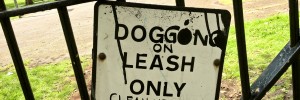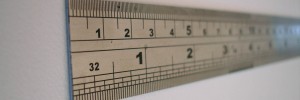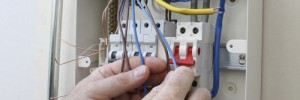Abolish the ban on recording court proceedings
Currently under Section 9 of the Contempt of Court Act 1981 it is illegal to tape record court proceedings. This topic was addressed by Ms Heather Brooke in a feature article in today's Times newspaper where she makes out the case very eloquently.
As a barrister and expert witness I too have encountered similar problems in the UK courts and believe that no is the time for this Government to abolish the ban
Alistair Kelman
www.alikelman.com
We are denied even the barest details of what goes on in supposedly public legal proceedings
Last week I had an encounter with open justice. I was attending the information tribunal hearing of a friend who is trying to investigate allegations that the Liverpool Women’s NHS Foundation Trust had a history of silencing whistleblowing staff by offering them public money to sign “gagging” contracts.
I’ve been to the tribunal before when I was fighting for the release of MPs’ expenses and that’s when I discovered the only record of proceedings of this so-called “open” people’s court (the tribunals are meant to be a less formal, more accessible form of justice) were my scribbled notes. When it came time to write a script for a dramatised TV version of the hearing, my notes and those of other reporters were all we had to go on. I’d asked at the time if I could tape-record the hearing and was told “no”.
This time I decided to press harder. The rhetoric of the English legal system is that justice must be seen to be done. So why are the public forbidden — under threat of jail — from recording a verbatim account of proceedings? Not only that, rules are so opaque and obscure that court reporters struggle to report cases with any degree of accuracy or depth. And that’s when there is a reporter in court at all: there used to be 25 reporters covering national courts for the Press Association; by 2009 there were four.
Anisa Dhanji, the judge, said she was concerned with the hearing being recorded. “Usually such requests are made in advance so the tribunal can maintain the necessary degree of control over the transcript.”
“Control” is exactly what a court shouldn’t be exerting. Once it is decided that it is open, there should be no restriction on how that open hearing is processed. She went on to say that she’d allow me to record now but I’d have to wait for a future ruling before I could “use” the recording.
The next day in court the judge announced she’d made her ruling. “Please turn your tape recorder off,” she said, looking sternly at me over her glasses. I did so.
“I have made my ruling. As you will no doubt be aware it is a contempt of court under Section 9 to make any kind of recording for any purpose including with a view to publication or transcription. It is for the court alone to decide if a recording takes place and the court must have control of the recording. To do otherwise is fraught with difficulty. Firstly there is a risk of manipulation. Secondly it puts at a disadvantage other parties. Any recording you have made thus far must be deleted and cannot be used in any way including transcription.”
At least that’s the gist of what she said because here’s the final irony: when I asked if I could have a copy of her ruling she said there was no written record of it. To close a court, effectively, from public scrutiny in a ruling of which there is no record strikes me as something straight out of Kafka.
The simple answer is to allow tape recorders for all: no party is disadvantaged and an “official” recording is there for checking. This is how it works in other countries. But that is to ignore the root objection of the courts: that they are losing control of how court proceedings are presented to the public.
The courts’ refusal to allow people to tape-record benefits a few private transcription companies whom the court approves in cosy deals. These people have exclusive rights to tape- record or listen to official recordings and then transcribe them. The cost to the individual of hiring them is about£150-£250 per hour of typing.
Many trials in the upper courts are now officially recorded, yet these records are not accessible to the public. All High Court hearings have been digitally recorded since February 2010. When I spoke to the court’s governance officer he told me there were no plans to make these accessible directly to the public. Why not?
I could go on. You might like to know whether the builder you’re going to give your keys to has any convictions for theft or if the company you’re about to do business with has a record for fraud. Tough. This information is not a click of a button away. Instead you’ll have to know the details of the case before you can call up any records — even though it’s the existence of cases that you’re trying to find in the first place. It’s Catch-22. If you do know some of the details you then have to battle petty officials across a number of court offices all for the simple purpose of accessing information that is supposedly public.
There are three main things that would make the courts useful to the public: (a) knowing by name who is on trial (the court list); (b) why (the particulars of claim); and (c) the result (the verdict, sentence or settlement). Yet trying to get any, let alone all, of these is fraught with difficulty.
We have a justice system paid for by the common people but whose proceedings are available only to the rich, powerful or privileged. Let’s not pretend that this is justice for all.
Heather Brooke is the author of The Silent State (Heinemann)
Why does this matter?
We have a justice system paid for by the common people but whose proceedings are available only to the rich, powerful or privileged. Let’s not pretend that this is justice for all. A simple change in the law so that a judge has to order "no recordings' and state why he is making this decision will ensure that justice can be seen to be done in the courts.
Suggested by ALISTAIRKELMAN and tagged court proceedings, court recording, court reporting, open justice, secrecy, tape recording. 11 Comments. Image source
















Pingback: Abolish the ban on recording court proceedings – an idea whose time has come? « Victims Unite!
Pingback: Abolish the ban on recording court proceedings « Escapee's Blog
The corruption and incompetence in Courts throughout the realm is such that judges are petrified to permit unedited transcipts pass into the hands of litigants. All recordings and transcriptions are judicially edited and intermeddled. A five hour hearing transcript will cost approx £1,500. No transcript is ‘verbatim’ as trumpeted by the transcriber/s, breaching the Trade Descriptions Actr. Closed shop practices exist twixt courts and transcriptors. The document paid for in good faith is useless as evidence having been extensively edited by insertions, corrections, redactions, transposition, or deletion of passages.
Applications to listen to tape recordings to verify verbal integrity are invariably refused by the judge concerned, or the designated civil judge. Honi soit qui mal y pense.
Yes personal recording should be allowed. The only reason it is dissallowed is because our corrupt judges may want to twist and distort the material evidence against the claimant or otherwise.
Are you aware that 85-year-old WWII veteran is in Leeds prison since 26 July for having turned on a recording device?
He’s hard of hearing and had permission before, but this time, a keen observer told the judge who was ‘disproportionately tough’ with his sentence.
An analysis of 1,000 comments by over 2,000 signers of the petition to Free Norman Scarth is on http://bit.ly/qmgZcN
If they have nothing to hide, they have nothing to fear!! These are OUR courts and as such we have every right to know what goes on inside them. Also, for justice to be done, justice must be SEEN to be done!
85 year old Norman Scarth was sent to prison for six months for attempting to record court hearing. He is being kept in Leeds Prison – a prison for serious offenders – in solitary confinement and denied his medications.
contact me for details
absolutely outrageous…. that poor man nearly at the end of his life who fought for his country, how must he feel? I really hope he sues for the way he has been treated – solitary confinement and denied his medications, human, civil and natural justice has not been adhered to and that’s putting it mildly…..
How would judges lie if all is recorded?
Some of the comments made by Peter unfair. The transcripts aren’t “heavily edited”; they are merely tidied up grammatically so that they are easier to read.
A five-hour hearing, depending on the quality of the audio, could take a whole working week to transcribe and then more time on top to check.
Also, the author of the article says it costs £150-£250 per hour of typing. This isn’t true. It may cost in that region for a transcript of a hearing that LASTED an hour, but in reality that will take at least six to seven hours to transcribe and check.
I was told by a Judge that she would chair the next hearing and that I would get a chance to speak to my husband (I did not want a divorce) and that he would have to be there. He was not.
Two months later, I was in court with a minder forcibly restraining me at the back of the court whilst the judge (another one) was refusing my Witnesses Affidavits & Statements. They were excellent and that is why they had to be excluded. I am a foreigner and a bit deaf so I was at a serious disadvantage as I could not follow what was being said.
Next hearing I had parted company with that firm of solicitors and I applied for extra time to arrange to be represented, and also for a psychological examination of my then husband’s mental state as I was and still remain convinced that he had been “got at”. The Judge said that my request could not be dealt ‘ex parte’ but since the following week was meant to be the divorce hearing when both parties and their solicitors would be in court, instead of dealing with the divorce, the Judge would consider both my applications. It would not be a divorce hearing and there was no need to bring witnesses etc. When I turned up without witnesses, I was confronted with a High Court Judge brought in specially to intimidate me who proceeded to deal summarily with my applications (in a few minutes) and then deal with the divorce. In relation to the divorce, I was not represented, my evidence had been excluded and I had been told not to bring witnesses… Well played!
It is not difficult to play and win at a game where you are the only people who can decide what happens next. I was charged £10,000 for that one hour hearing! And I have been unable to pay extra to get an unedited transcript of the divorce hearing and in particular of the last hearing which preceded it.
The documents submitted to the Court for the Ancillary Relief Proceedings (brought on by my poor husband who did not contribute to the family welfare for 34 years but was going for a new source of funding – a ‘wealthy ‘ woman who was canny enough to make sure wife number one would cover the running costs of her new poor partner) were fallacious and did not reflect the reality of the financial facts or of the marriage. I was not represented and was in a terrible state of health (that is why I had to be replaced by a new, younger, richer model) but the Court did not have any sympathy and I think that it would be inconceivable that I would get my own way since I was a foreigner etc.. The transcript I got from the other side solicitors had obviously been ‘edited’ or tidied up as what I had said deliberately in court had been censured…
But I will not give up. There must be a way to show them up. Most people give up but I don’t.